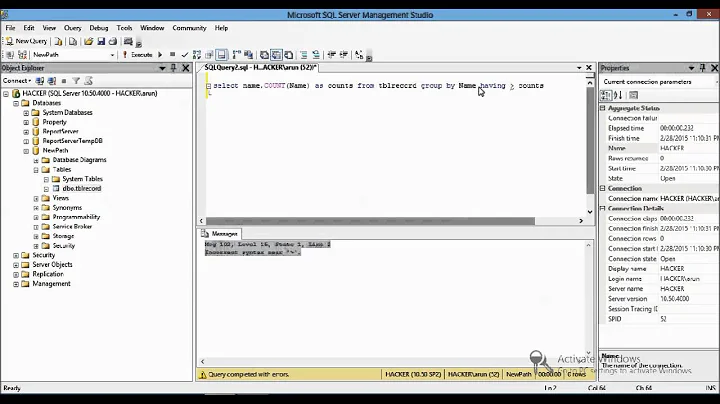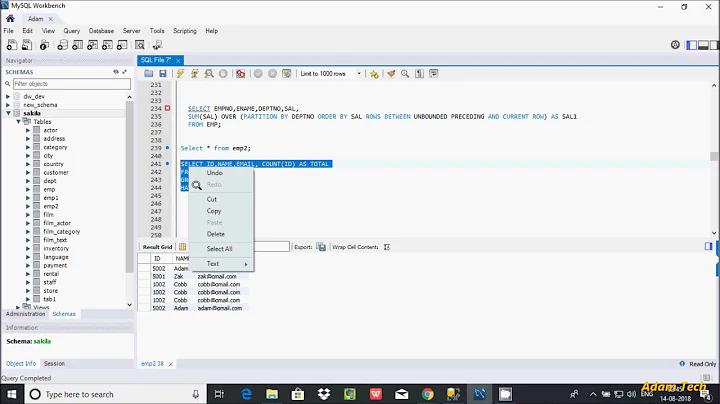selecting duplicate IDs in mysql
Solution 1
select part_id from temp
group by part_id
having count(*) > 1
This will give you the part_id's with more than one row. You can then wrap that like your example query to get all of the part_id/part_type data for all parts with more than one row.
select * from temp
where part_id in (select part_id from temp
group by part_id
having count(*) > 1)
order by part_id
Solution 2
I love GROUP_CONCAT for this stuff, because it gives you the answer to this question (how many) and the next question (which types).
select part_type, count(*), group_concat(part_id)
from temp
group by 1
having count(*) > 1;
Related videos on Youtube
julio
Updated on April 18, 2020Comments
-
julio about 4 years
I have a very simple table that has just part_id and part_type:
CREATE TABLE `temp` ( `part_id` INT NOT NULL , `part_type` CHAR( 5 ) NOT NULLThis has a long list of part id's and types. However, some parts have more than one type. How would I get the IDs of just the parts that have more than one type? I was thinking something like this would work:
SELECT * FROM temp WHERE part_in IN (SELECT count(part_id) as duplicates FROM temp WHERE 1 GROUP BY part_id) AND duplicates > 1however, this is clearly just psuedocode and fails. Thanks for your help.
-
thomas about 13 yearsin addition: if you are also interested in the count-value (it's nearly for free for the db) you can modify the select to the following: select part_id, count(*) as mycount from temp ...
-
ThinkCode about 11 yearsThis gives a different set of data than the OP asked for but yeah, this is an imp query to find duplicates concatenated in one row with one query!
-
emmanuel honore over 8 yearsWhat is
GROUP BY 1? -
Alain Collins over 8 years"group by 1" is a shortcut to the first field, so identical to "group by part_type" in this case.



![3 Ways To Find Duplicate Rows In Sql | SQL Query To Find Duplicate Records [2021]](https://i.ytimg.com/vi/FCTFkWh99hI/hqdefault.jpg?sqp=-oaymwEcCOADEI4CSFXyq4qpAw4IARUAAIhCGAFwAcABBg==&rs=AOn4CLDX2vD1b2q1tQSukKsVbJpFg7lIMQ)


